Curriculum Overview
Starting in the summer, your first graduate courses for the Design focused on Health degree will give you preliminary instruction in studio-based design, design research methods, and prototyping. This foundational sequence equips you with the tools needed for field research, cutting-edge design in health courses, and the final Capstone project that ensues through the spring.
The fall semester will introduce you to advanced service design methodologies and practical approaches for addressing challenges specific to the healthcare industry. You’ll learn to take a holistic human-centered approach as you engage in fieldwork to uncover your audiences’ needs, develop user journeys, and interpret insights to drive change.
In your final semester, you’ll dive even deeper into concepts of health as well as healthcare systems with a focus on your final Capstone project. Working in a collaborative group, your team will devise a design-led plan for tackling a real-world client challenge. The ultimate objective is to prepare you with indispensable knowledge for integrating design-based solutions into the healthcare industry resulting in more human-centered services and value out in the world. The Capstone project culminates in a final presentation to clients, peers, and faculty–and a professional piece for your portfolio.
M.A. in Design focused on Health Courses
Introduction to Design Thinking
A preliminary foundation in the emerging practice of Human-Centered Design, the methodology driving design thinking. (3 credits)
3-D Prototyping
Using rapid prototyping methods with an emphasis on products and the built environment, this course prepares students to use prototyping as a means of testing ideas iteratively. (1 credit)
Sketching for Communication
Students learn the elements of sketching to visualize concepts, document their thinking, and quickly bring alignment to teams. (1 credit)
Eliciting and Inspiring Participant Data
This course grounds students in the tactics and techniques of several common primary research methodologies including contextual inquiry, intercept interviews, personal inventories, empathy modeling, and others. (1 credit)
Fieldwork in Design
Students conduct field work as part of a collaborative project team under the supervision of a faculty member. This course will emphasize the application of design research tools as a strategic practice within a complex project. (3 credits)
Service Design
Students are equipped to improve existing health care services, create new ones and navigate the complex social, political and organizational challenges to bring them to life. (3 credits)
Design in Health: Introduction To Collaboration
Building on the foundational design tools, this course layers the nuanced and complex considerations for designing in the health space, while digging deep in design practice and challenging legacy health notions. (3 credits)
Graphic Communication Tools
2-D visualization tools for print and screen. (2 credits)
Anthropology of Design*
This course exposes students to anthropological and ethnographic tools that can attune practitioners to difference (social and cultural) and its implications. (3 credits)
Health Care Law and Policy
This course considers some of the toughest problems in current health law and policy. (3 credits)
Final Project in Design
Student-led culmination and defense of learning. Each student will design and lead their own project with the guidance of a faculty member. (1 credit)
Design in Health Studio
In this capstone project course, student teams collaborate with clients, applying their design skills to immediate challenges in the health space. (6 credits)
Health Systems Design
Students will explore all aspects of complex health ecosystems, learning principles and methods to understand interconnection and design future systems that elicit new behaviors. (2 credits)
The Business of Design in Health*
This course equips students with acumen to navigate and succeed in the business aspects of applying and positioning design in health. (3 credits)
Storytelling for Presentation*
The frameworks for good storytelling applied to professional presentation and written work. (1 credit)
Core Laboratory 1 – Design Futures*
Students are introduced to the practical tools of strategic foresight to imagine possible futures. Emphasis is placed on understanding the language, theories, and methods of futures studies. (3 credits)
Final Project in Design
Student-led culmination and defense of learning. Each student will design and lead their own project with the guidance of a faculty member. (1 credit)
Note: Exact courses, sequencing, and credit hours are subject to change. Courses waived for Dell Medical School students are denoted with an asterisk.*
Navigating Your Courses
The M.A. in Design focused on Health curriculum is delivered over three semesters starting in early August and concluding in May. The M.A. in Design program is offered on a full-time, in-person basis only. Classes are typically scheduled Monday through Thursday between the hours of 9am and 5pm.
Recent Capstone Clients

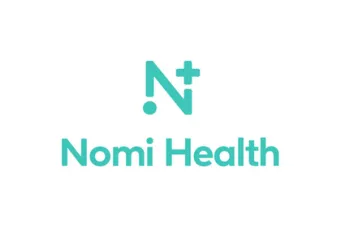
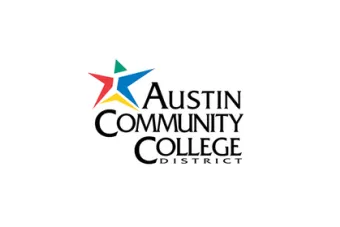
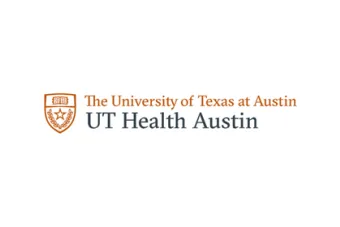
(Post-COVID-19 Program)
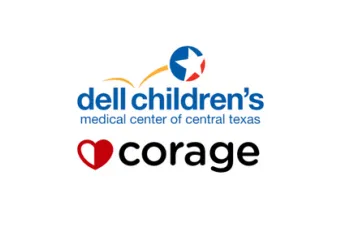

(Student Health Services)
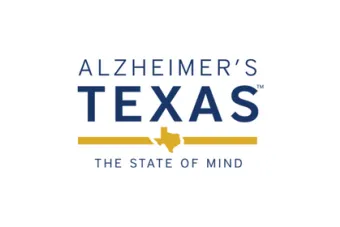
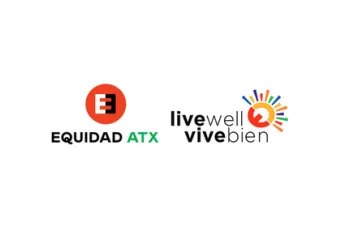
Case Studies

HEB
How might we elevate curbside care beyond the norms of traditional healthcare experiences while keeping our solution flexible and scalable?
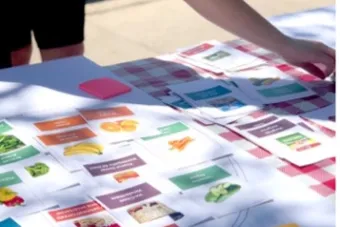
Live Well Vive Bien
How might we best utilize our available assets to design a sustainable, holistic experience within our target communities to address food insecurity in a dignified and COVID-19-safe manner?
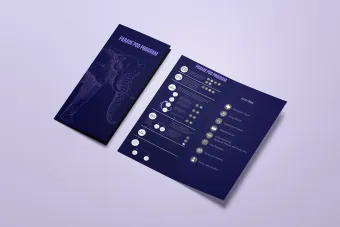
Alzheimer’s Texas
How might we connect Alzheimer’s and dementia caregivers and help ensure they receive the support they need in the COVID-19 era?
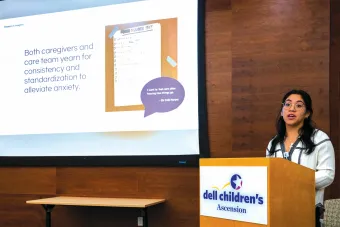
Corage
How might we use human-centered design to improve the congenital heart disease discharge process at Dell Children’s Hospital for single ventricle patients, families, and the care team?
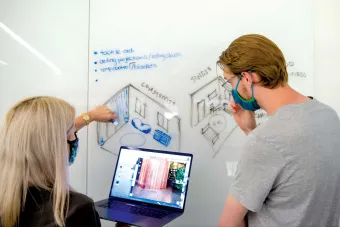
Gallaudet
How might we bridge health service silos and create effective communication channels that will best serve deaf communities?

IC2
How might we both leverage libraries as integral components of the healthcare continuum and secure the additional support necessary for this transformation?

